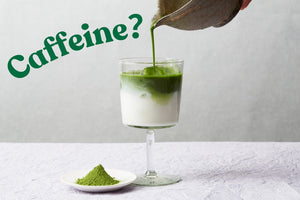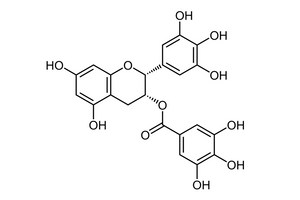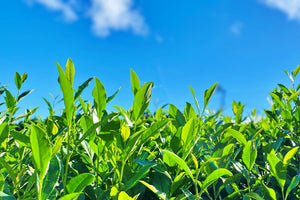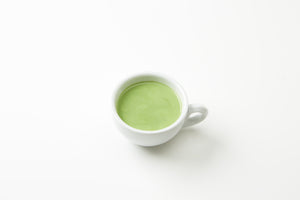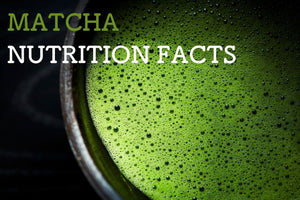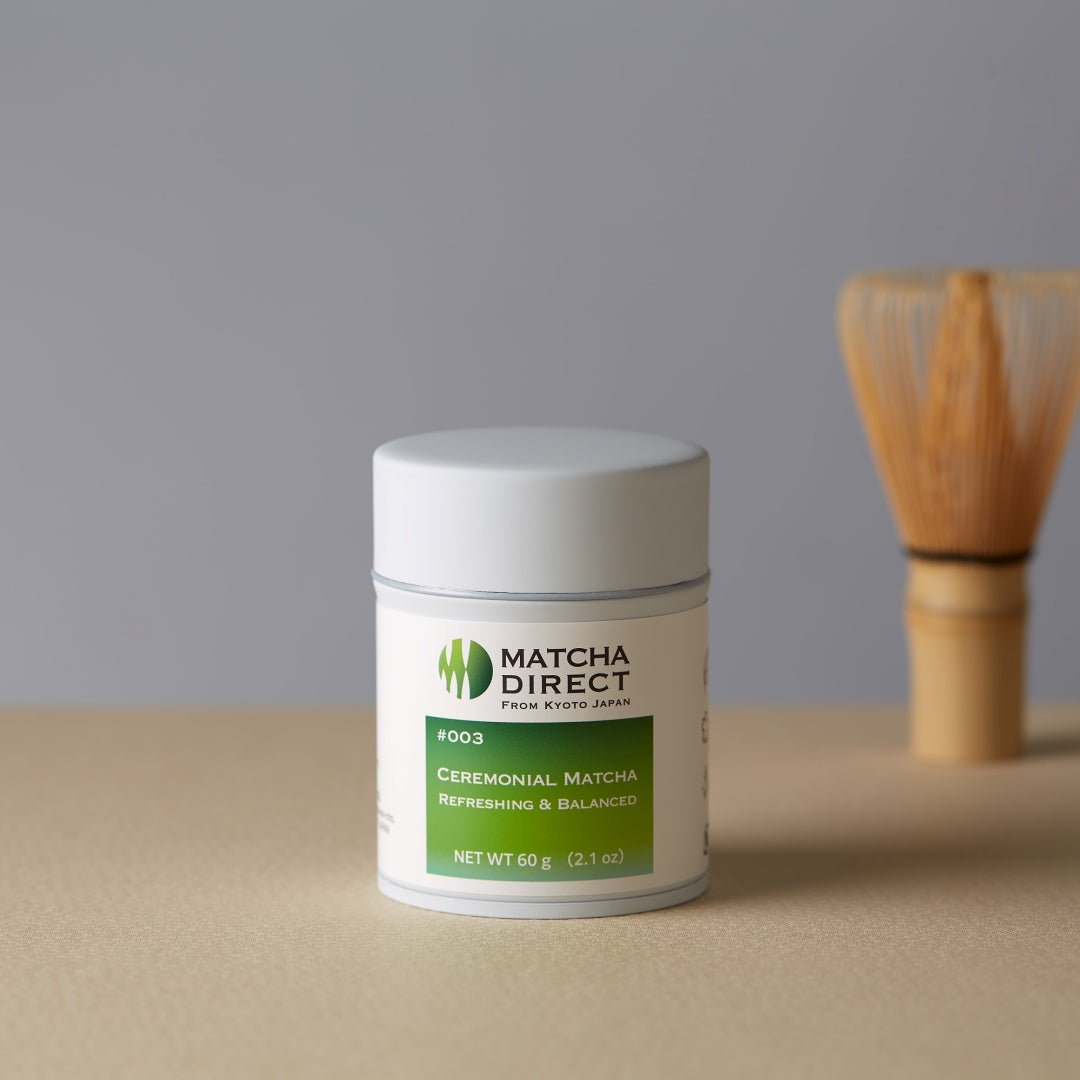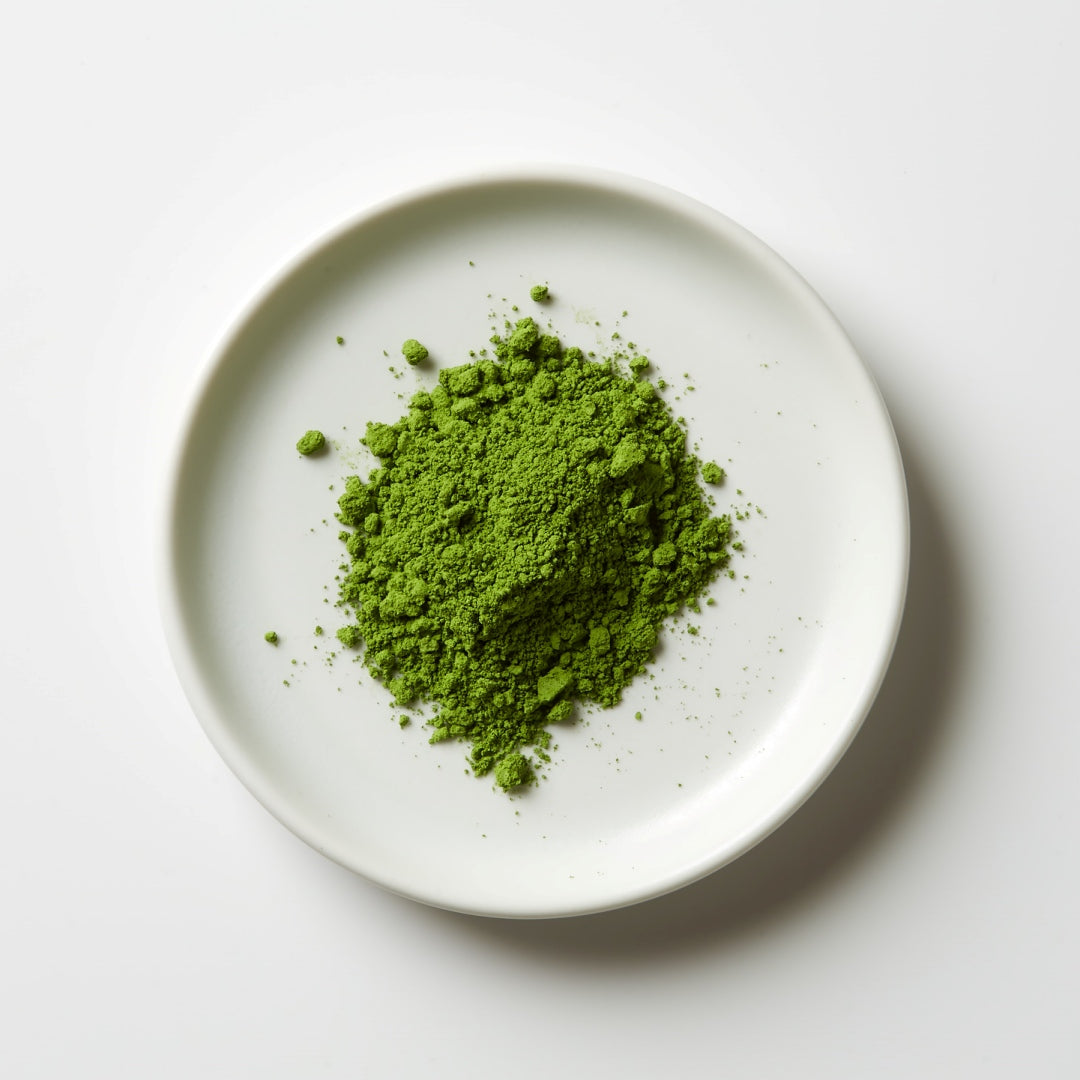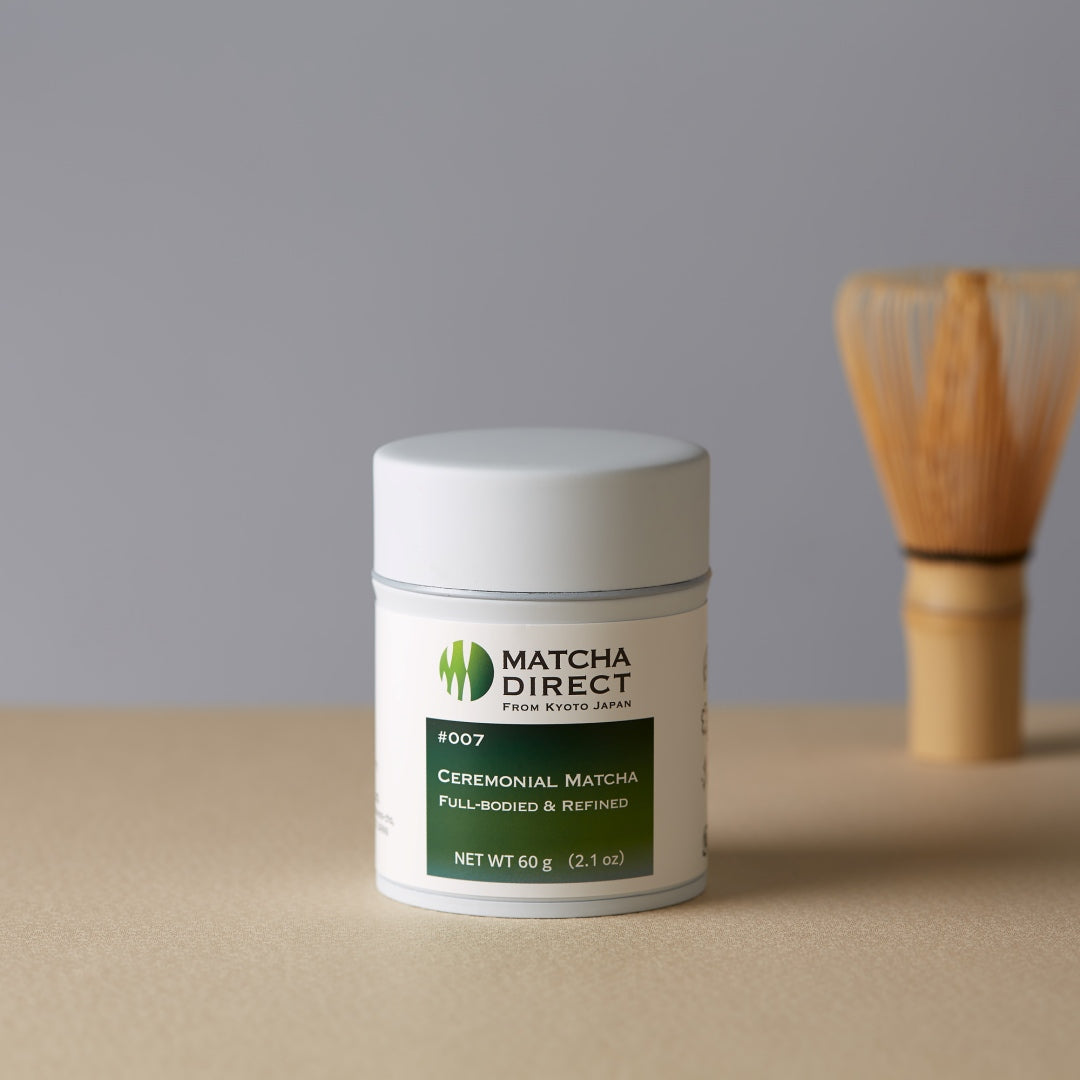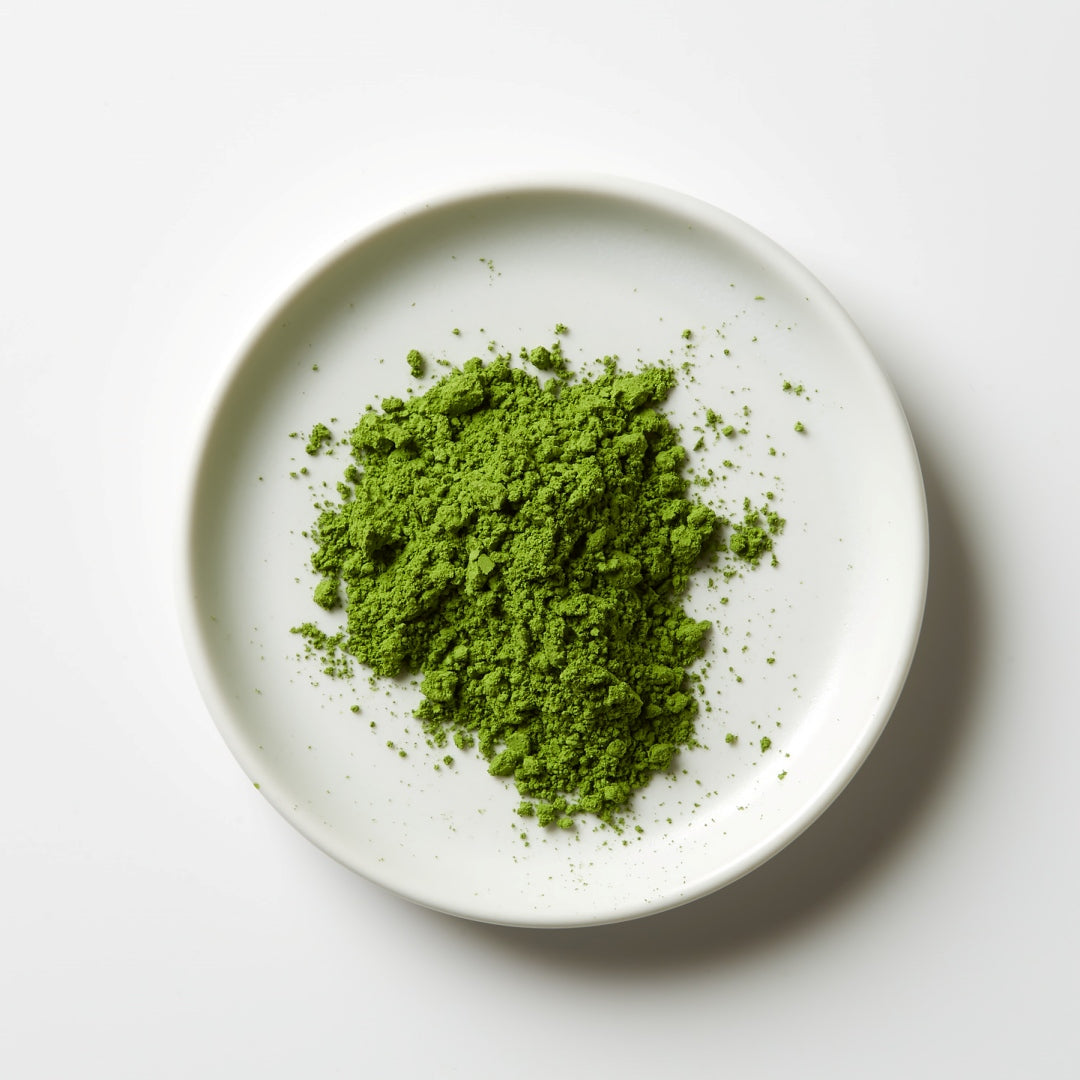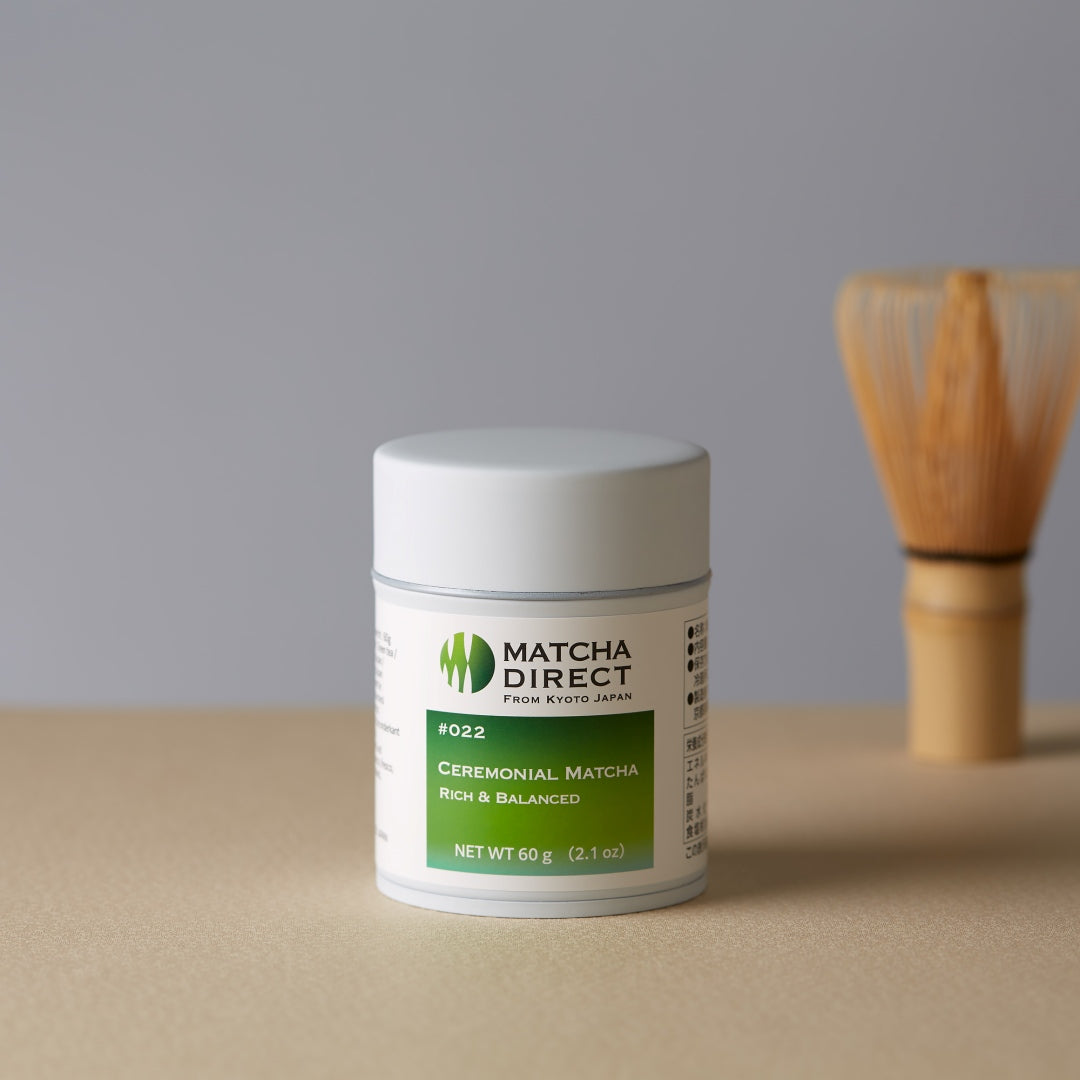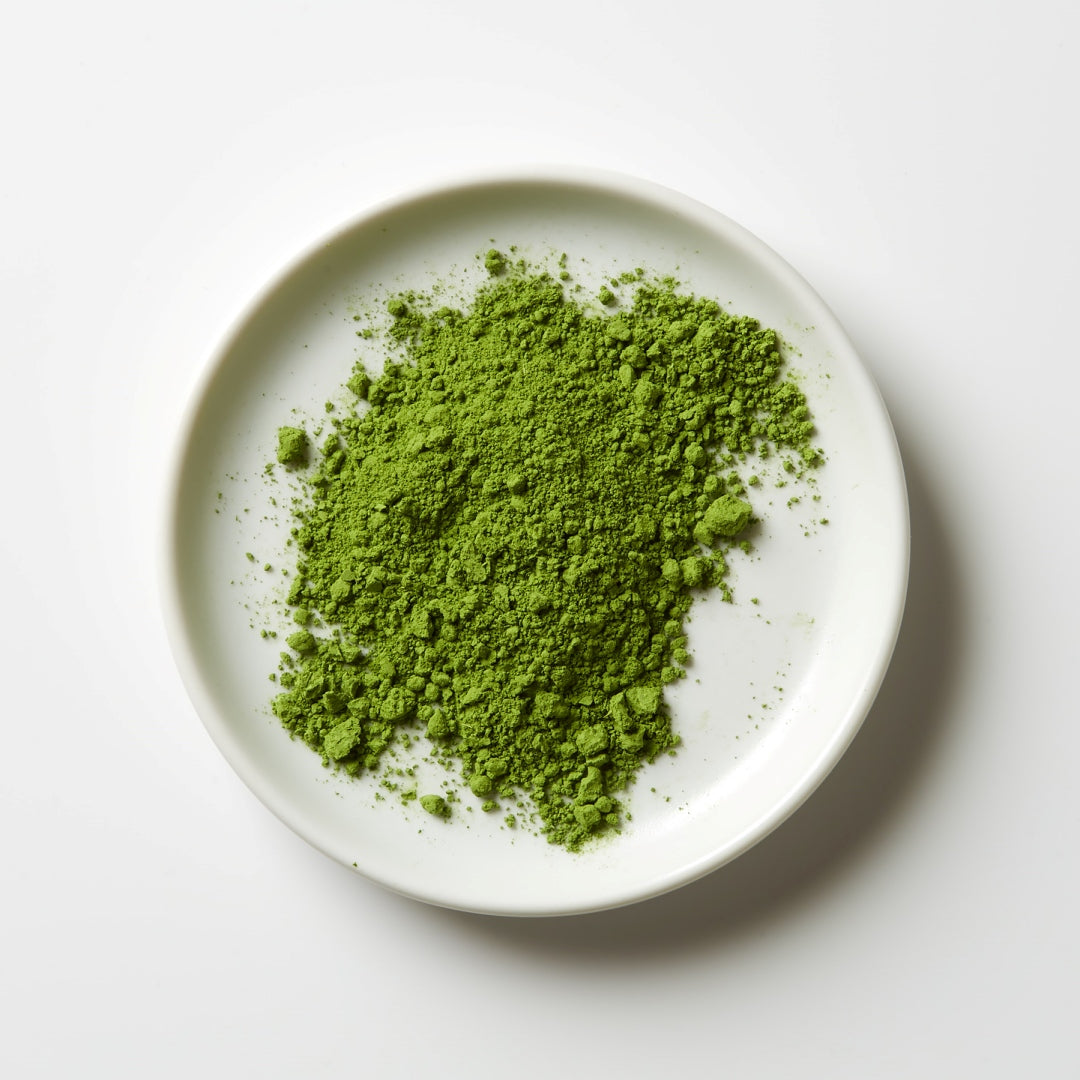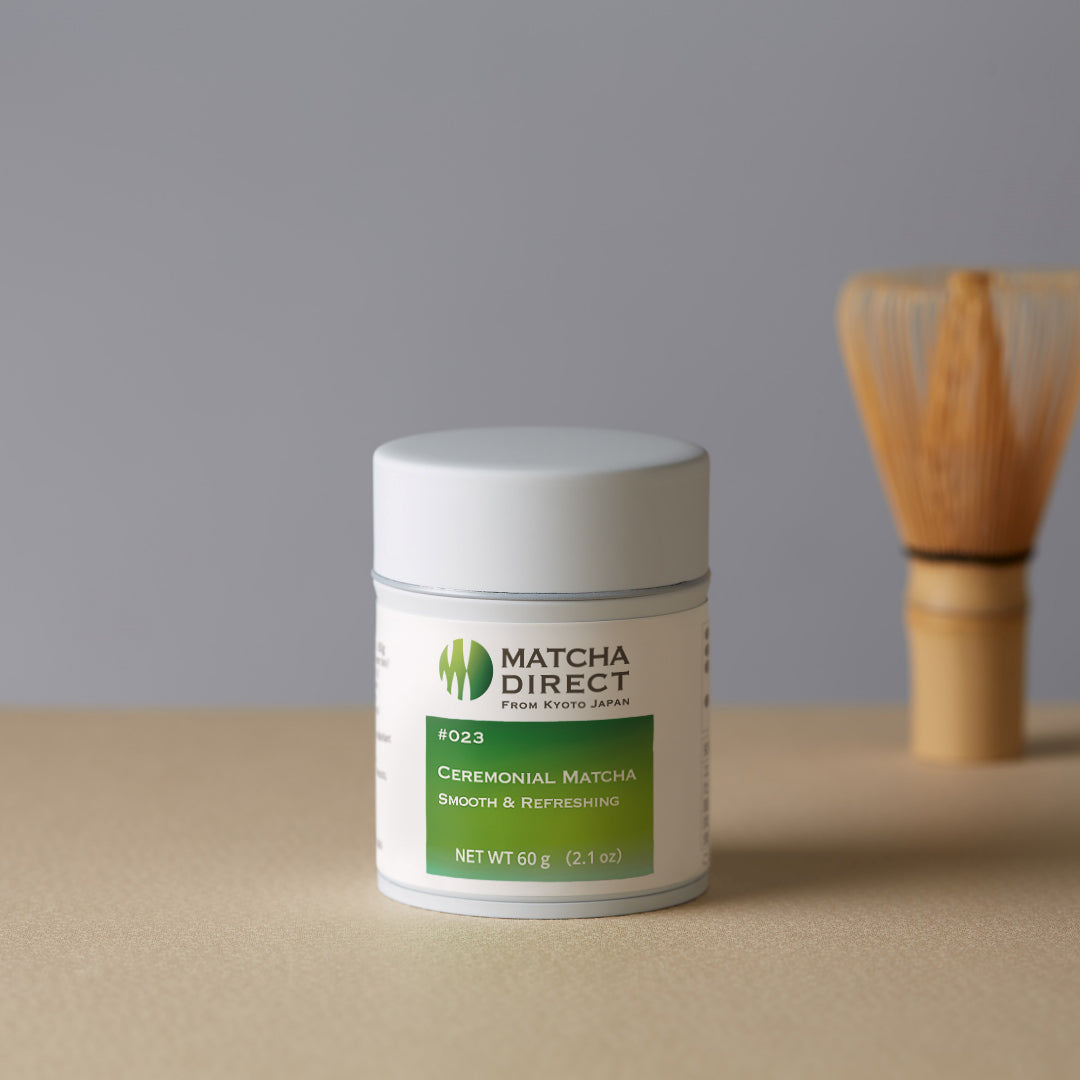Matcha and Sleep: Should You Drink Matcha Before Bedtime?

Matcha is widely known as a traditional Japanese beverage and is loved around the world for its rich flavor and health benefits.
However, it's also well known that matcha contains caffeine, and many people wonder, "Is it good to drink matcha before bed?" So this time, we’d like to explore the answer to this question by introducing the components contained in matcha and their effects.
What is Matcha?
Matcha is a traditional powdered green tea that represents Japan. It is made by steaming and drying tea leaves grown under shade and then carefully grinding them with a stone mill. Due to this special manufacturing method and the time-consuming process, it is considered more expensive than other teas.
Matcha, with its vibrant green color and unique flavor, has long been enjoyed as a beverage deeply rooted in Japanese culture.
Furthermore, matcha is also drawing attention for its high health benefits. It is rich in various nutrients, including catechins, which have antioxidant properties. Another characteristics is that, since the tea leaves are ground into powder and consumed whole, you can take in all their nutrients. These features have been well received, and in recent years, matcha has gained popularity worldwide as a superfood.
The Theanine and Caffeine Contained in Matcha
In addition to the catechins mentioned earlier, matcha also contains components believed to provide relaxation and stimulation. These are "theanine" and "caffeine." By drinking matcha, these components work in balance, providing moderate energy while keeping the mind and body calm.
Theanine
Theanine, a component that produces the umami flavor, is one of the important nutrients found in matcha. It is said that theanine has the function of suppressing the secretion of stress-inducing hormones, bringing about calming and relaxing effects.
Caffeine
Matcha also contains caffeine, which has a stimulating effect. A single cup of matcha is said to contain about 64 mg of caffeine, which is nearly equivalent to one cup of drip coffee (approximately 60 mg). Therefore, matcha can be considered a beverage that contains a relatively high amount of caffeine.
Synergistic Effect of Theanine and Caffeine
The theanine contained in matcha not only provides a relaxing effect but also moderates the absorption of caffeine. As a result, unlike coffee, matcha does not cause a strong caffeine-induced stimulation immediately, and the effect tends to last more gradually.
However, excessive caffeine intake has also been pointed out as having adverse health effects. The recommended daily intake of caffeine is about 400 mg, so be careful not to consume too much.
https://matchadirect.kyoto/blogs/matcha-101/how-much-caffeine-is-contained-in-matcha-vs-coffee
Research Results on Theanine and Sleep, Matcha and Sleep
Several studies have been reported on the relationship between theanine or matcha and sleep.
One study showed that taking 200 mg of theanine improved sleep quality.
However, this study involved taking a large amount of theanine alone, and the amount of theanine contained in one cup of matcha (approximately 27 to 53 mg) differs significantly. Therefore, it cannot be definitively stated that drinking matcha will produce the same results as shown in that study.
In another study, it was reported that regular matcha consumption did not adversely affect sleep duration, time taken to fall asleep, or the frequency of nighttime awakenings. In fact, it was even suggested that sleep quality might improve.
However, it is important to note that this study was conducted under the condition that matcha was consumed during the day, avoiding intake within two hours before bedtime.
From these research results, while it is possible that theanine may help improve sleep quality, the caffeine contained in matcha could also be a factor that disrupts sleep.
Reasons to Avoid Matcha Before Sleep
As discussed so far, it is true that the theanine in matcha has a relaxing effect. Based on the previously mentioned study results, some people believe that cosuming matcha, which contains theanine, can promote relaxation before sleep.
However, matcha also contains caffeine, which has a stimulating effect and may lower sleep quality. While theanine can moderate the effects of caffeine, it does not completely eliminate the stimulating effects of caffeine.
Therefore, even if a relaxing effect can be expected, it is better to avoid drinking matcha before going to bed.
Best Decaf Matcha Options for Reducing Your Caffeine Intake
Even so, some people may still wish to enjoy the rich flavor and relaxing effects of matcha before bedtime. For such people, we recommend the decaf matcha that is popular at MATCHA DIRECT. This product allows you to fully enjoy the unique umami and aroma of matcha while keeping caffeine intake low, supporting a pleasant moment of relaxation.
Our decaf matcha uses carefully selected tea leaves and employs a unique method to remove caffeine. As a result, you can enjoy the rich flavor and aroma of matcha without worrying about the stimulating effects of caffeine. It is especially recommended for relaxation at night or for those who are sensitive to caffeine.
https://matchadirect.kyoto/collections/decaf-matcha/products/051-decaf-matcha-60g



